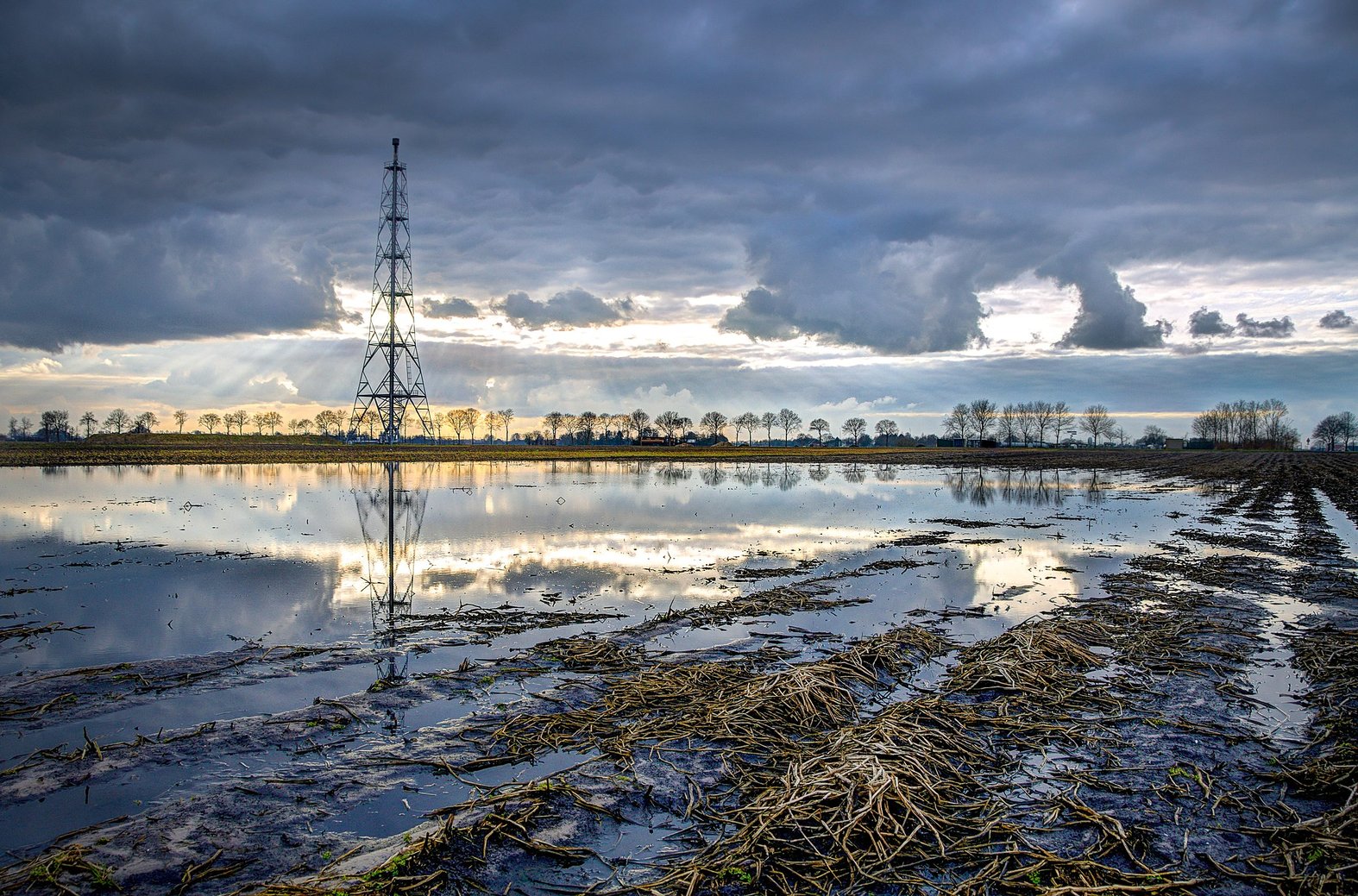Picture this: You run a business that makes you €64.7 billion over sixty years. Your operations cause over 1,600 earthquakes that damage almost 100,000 homes and traumatize an entire region. When the government finally shuts you down to protect citizens and the climate, what do you do?
If you’re Shell and ExxonMobil, you sue for more money.
This is where we are with the Groningen gas field closure in the Netherlands. And it’s absurd enough that we need to talk about what democracy actually requires when it comes to the fossil fuel transition.

The Economic Frame Is a Trap
We keep treating the phase-out of fossil fuels like an optimization problem: Who gets compensated? How much? What’s the least-cost pathway?
But this framing is designed to make us miss the point. The question isn’t “what’s economically efficient?” It’s “who has to sacrifice, and why?” Democracy necessarily involves sacrifice, as political theorist Danielle Allen argues in her book Talking to Strangers. In any contentious decision, some people win and some lose. That’s not a bug; it’s a feature. What makes democracy workable is the expectation of reciprocity: that winners today might be losers tomorrow, and vice versa. Turn-taking, basically.
But here’s the thing: fossil fuel companies have been ‘winning’ unabated for over a century. They’ve chaired every committee, set every agenda, and crucially, externalized every cost they possibly could onto communities, ecosystems, and the atmosphere itself.
The Groningen earthquakes? Those were sacrifices imposed on Dutch residents so Shell and ExxonMobil could profit. Nobody in Groningen voted for their houses to crack and their neighborhoods to become seismically unstable, or for their health to degrade amongst the stress and released methane. These were costs that got socialized while profits stayed private.
Solidarity Means Something
The just transition literature has been getting more explicit about what’s actually needed here, and it’s not market mechanisms. Scholars like Hess et al. (2023) argue for “enabling a just energy transition through solidarity in research”—which means repoliticizing energy transitions rather than treating them as technical problems to be solved by economists and engineers.
At COP24 in Poland, countries adopted the “Solidarity and Just Transitions Silesia Declaration”—a commitment to take seriously the impacts of climate policy on workers and communities. Solidarity isn’t just a nice word. It’s a political practice that requires standing with marginalized groups against powerful actors trying to preserve asymmetric arrangements.
Which brings us back to Groningen. Who are the marginalized groups here? The residents who endured decades of earthquakes. Future generations facing climate catastrophe. Ecosystems already degraded by extraction.
Who are the powerful actors trying to preserve asymmetric arrangements? Take a wild guess.
Shell and ExxonMobil are using something called investor-state dispute settlement (ISDS)—specifically the Energy Charter Treaty—to demand “prompt, adequate and effective compensation” for the closure. These proceedings happen in secret. No Groningen residents have been called to testify. The companies are essentially suing in private tribunals to override democratic decisions made to protect public health and meet climate obligations.
This is what Cumbers et al. (2017) mean when they argue for “states of just transition” that enable “solidarity and shared governance.” The Dutch government’s decision to close Groningen represents exactly the kind of protective state action that just transition requires. The fossil fuel companies’ legal assault represents an attack on the state’s capacity to act in solidarity with its own citizens.

Turn-Taking Requires Actual Turns
Back to Allen’s framework, she recalls that democracy works when losers believe that their sacrifice serves some legitimate collective purpose and that winners will eventually also have their time to backseat their concerns to other needs in a democracy. If we accept value pluralism, the notion that in any society there are certain values that you can’t just have 100% of all, because they fundamentally conflict with each other, such as mercy and might, freedom and equality, or economic profit versus environmental health, then there has to be a constant reevaluation of values that doesn’t just allow one to trump all the others indefinitely.
But what happens when some actors never lose?
Allen writes about how sacrifice must be reciprocal and acknowledged. “Winners get to chair the committee meetings where decisions are made but losers are still on the committee,” she argues. The problem is that fossil fuel companies have treated democracy as a system where they permanently chair all committees and everyone else gets to absorb the consequences.
Fossil fuel companies profited during extraction. They blocked climate policy for decades while knowing the consequences. They externalized environmental and social costs at every turn. And now they want to get paid again – this time for the transition away from the business model they spent decades defending.
This isn’t turn-taking. It’s heads-I-win, tails-you-lose.
The companies demanding compensation earned €64.7 billion in profit from Groningen while the Dutch state earned €363.7 billion. Fine. They had a good run. But those future profits they’re suing over? Those could only be realized by imposing more earthquakes on Groningen residents and more carbon into an already destabilized climate. There’s no legitimate claim to compensation for being prevented from causing further harm. The costs to the Dutch people, the Dutch housing prices in the region, the local environment, and the global atmosphere are not being included in these profits. And the compartmentalization of accounting makes all the difference in how we view cost-benefit analyses.
Why Companies Should Eat the Loss
Let me be clear about what I’m arguing. Fossil fuel companies should accept Groningen’s closure without compensation. Not as punishment (though I wouldn’t lose sleep over that either), but because democratic legitimacy and climate justice demand it.
Here’s why:
Historical responsibility matters. These companies made enormous profits by externalizing costs onto communities and ecosystems. The earthquakes, the damaged homes, the psychological and physical trauma—those were real sacrifices that Dutch residents bore so Shell and ExxonMobil could maintain their profit margins. You don’t get to externalize costs for sixty years and then claim compensation when you’re finally held accountable.
The “polluter pays” principle isn’t optional. The companies are simultaneously contesting their liability for earthquake damages while demanding compensation for closure. This is absurd. If you bear responsibility for the harms your operations caused, and they absolutely do, then you can’t also claim compensation when those operations get shut down. The obligation to stop causing harm doesn’t come with a buyout clause.
Climate obligations override investment claims. The Netherlands has binding commitments under the Paris Agreement. Continued gas extraction would violate those obligations and impose catastrophic costs on future generations. The recent ICJ advisory opinion strengthens the argument that climate obligations must inform interpretations of investment law. You can’t have a system where protecting the climate becomes grounds for corporate compensation claims.
Democratic sovereignty requires it. States need the authority to protect their citizens from harm and pursue the public interest. If every environmental protection measure triggers compensation claims from affected industries, you’ve effectively privatized sovereignty. That’s not democracy; it’s corporate rule with democratic window dressing.
Reciprocity demands it. Fossil fuel companies have been democracy’s winners for over a century. They shaped energy policy, captured regulatory agencies, funded climate denial, and extracted trillions in profits. If democracy requires turn-taking between winners and losers, then it’s way past time for these companies to take a turn as losers. Otherwise the whole social contract becomes a joke.
The Absurdity of the Situation
A joint venture between two of the world’s largest corporations extracts gas for sixty years, earning tens of billions in profits. Their operations cause over 1,600 earthquakes that damage 85,000 buildings. The government finally prioritizes citizen safety and climate obligations by closing the field. And the companies respond by suing in secret tribunals for billions more in compensation for “lost profits.” The audacity is almost impressive.
SOMO’s recent report warns that these cases are “casting a long shadow”—potentially deterring future government action on other fossil fuel projects in the Netherlands. That’s the point, of course. The lawsuits serve as a signal to other governments: try to phase out fossil fuels and we’ll tie you up in expensive arbitration for years.
This is what scholars mean when they talk about the need to attend to “politics, power, and prefiguration” in just transitions. You can’t achieve transformative change while leaving intact the power structures that enabled fossil fuel dominance in the first place.
ISDS system, which 50+ countries signed onto through the Energy Charter Treaty, was a mistake. The Netherlands should join the EU in withdrawing and should work to neutralize the treaty’s sunset clause that allows claims for 20 years after withdrawal.
Designing transition policies that explicitly reject the premise that fossil fuel companies deserve compensation for “lost” profits from activities that were always harmful and are now actively destroying the climate is crucial to not get ballyhooed into continuing what Amy Westervelt has called “The Fossil Fuel Spin Cycle” of media and political spin. Those future profits were never legitimate. Their externalities were never legitimate. This twisted situation could only be realized through imposing sacrifices on others that these ‘others’ never consented to in the first place.
And it means being honest about power. The companies suing the Dutch government aren’t innocent investors who happened to lose out in a policy shift. They just now seek to extract one more round of rents from a transition they were forced into. Otherwise, they’d be happy for us to burn the earth, and extinct the human population in order to not have stranded assets.
Democracy Requires Fossil Fuel Sacrifices
I keep coming back to Allen’s insight about sacrifice and reciprocity. The fossil fuel’s industry had a good run; but the harms which accumulated from burning fossil fuels have been ‘biphasic’ — low doses of extraction, they helped us develop technologies that helped our society without undermining existence, producing an eROI (energetic return on investment) of 100:1 (100 units of energy out for every unit that went in); in higher doses of extraction, however, they have had a different effect. Fossil fuels now have become an addiction, with new stupid things like wasteful AI and doomsday machines like Bitcoin sucking up unnecessary amounts of energy for basically nothing: cat videos and speculation. These are not worthwhile values. Sorry. And the energy that we get from fossil fuels? Today, it is in many places barely 2-5 times that what we put in. Its a ridiculous low eROI, with increasingly high environmental and health costs. If we go back to Raphael Lempkin’s original definition for genocide, and look how the destruction of habitats destroys peoples’ cultures, then fossil fuel ecocide is leading to genocide as well.
The energy transition represents one of the rare moments when fossil fuel companies are required themselves to transition – when they must sacrifice rather than imposing sacrifices on others. Their response? Sue to prevent even this modest accountability. If we let them win this one too — if we allow them to claim compensation for transition losses on top of all their extraction profits — we’re not just making bad policy. We’re demonstrating that democratic turn-taking is fiction, that power always wins, and that sacrifice is something only the powerless must endure.
The people of Groningen already sacrificed for sixty years. The climate is already destabilized. Future generations will bear costs we can barely imagine. It’s past time for fossil fuel companies to take their turn. No compensation. No secret tribunals. No extracting public money to stop extracting public goods. Just transition means they need to lose this one. Cleanly, clearly, and without a payout for playing. That’s what solidarity looks like. That’s what democracy requires. And honestly? After everything they’ve put us through, it’s the least they can do.
